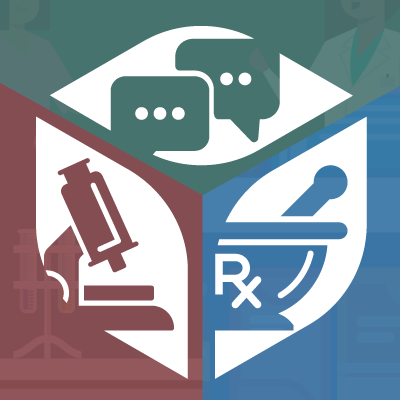WHAT ARE STIs?
Sexually transmitted infections (STIs) are sometimes called sexually transmitted diseases (STDs). They are caused by germs (bacteria, viruses, or parasites) that are passed from person to person during sex.
Sex can mean many different things to different people. Some of the common types of sex that can spread STIs include putting a penis into a vagina, butt (anus), or mouth. And/or putting a mouth on a penis, vagina, or butt. Sex also includes using sex toys in the vagina or butt.
Types of STIs
There are many STIs. Some of the names are hard to spell but the germs are easy to catch. Also, some STIs may be present in more than one part of your body if you have oral or butt sex. The symptoms and treatments may be different depending on which STI you have and what part of your body is infected.
Each year, there are approximately 357 million cases around the world of the four most common STIs. The number of STI cases in the United States reached an all-time high. It is very important to get tested if you are at risk for STIs and to get treated if your test is positive. The consequences of untreated STIs can be severe and include infertility and increased risk of HIV infection.
Gonorrhea
[Gone-or-ee-ah]
An STI that can infect women and men and cause serious health problems in both. Read more about gonorrhea’s symptoms, risks, and treatments.
Syphilis
[Siff-a-liss]
An STI that has multiple stages: primary, secondary, latent, and tertiary. If not treated, it can cause very serious health complications. Read more about syphilis’ symptoms, risks, and treatments.
Hepatitis B
A serious liver disease that is spread through sex, by sharing needles when injecting drugs, and from mothers to babies at birth. A vaccine is available that prevents this infection. Read more about Hepatitis B’s symptoms, risks, and treatments.
Hepatitis C
Another serious liver disease. It is mainly spread through direct contact with infected blood. It can be spread in the same ways as Hepatitis B but is less easily transmitted through sex. Hepatitis C is curable with proper treatment. Read more about Hepatitis C’s symptoms, risks, and treatments.
Chlamydia
[Kla-mid-ee-a]
A common STI that can infect women and men. If not treated it can cause serious damage to a woman’s internal organs. Read more about chlamydia’s symptoms, risks, and treatments.
HIV
A virus that is spread through sex, by sharing needles when injecting drugs, and from mothers to babies during pregnancy, birth, or breastfeeding. HIV is not currently curable but can be controlled with proper medical treatment, allowing most people to live normal lives. Read more about HIV. Read about HIV and injection drug use.
Bacterial Vaginosis (BV)
[Vag-in-oh-sis]
A condition that affects women. It happens when there is an imbalance of bacteria in the vagina. If not treated, it can increase a woman’s chances of getting other STIs and HIV. Read more about BV’s symptoms, risks, and treatments.
Monkeypox
Monkeypox is a rare disease caused by the monkeypox virus that can be spread through contact with monkeypox sores/rashes, contact with objects used by someone with monkeypox or oral fluids. Read more about Monkeypox symptoms, risks, and treatments.
Trichomonas
[Trick-a-moan-us]
A common STI that is caused by a parasite. It is more common in women than in men. Read more about trichomonas’ symptoms, risks, and treatments.
Human Papillomavirus (HPV)
[Pap-ill-oh-ma]
The most common STI. It can cause genital warts and cervical cancer. A vaccine is available that prevents this infection. Read more about HPV’s symptoms, risks, and treatments.
Genital Herpes
An STI that is caused by two types of viruses that also cause cold sores in the mouth. It infects women and men. There is no cure for herpes but there are medicines that can prevent or shorten outbreaks. Read more about herpes symptoms, risks, and treatments.
Mycoplasma genitalium (Mgen)
Mgen is a curable STD that can infect the cervix, urethra, and rectum. If left untreated, it can lead to permanent health problems. Read more about Mycoplasma genitalium symptoms, risks, and treatments.
Ways to prevent STIs
There is just one 100% guaranteed way to prevent STIs and that is to not have sex (genital, butt, or oral). The Good News is there are other ways to protect yourself and your partner(s) from STIs.
- Only have sex with one partner who is only having sex with you. You should both get tested for STIs before having sex.
- Reduce your number of sex partners. You and your partners should still get tested for STIs and share your test results.
- Get vaccinated for HPV and Hepatitis B, the two STIs for which vaccines are available.
- Use a condom correctly every time you have any type of sex. There are different types of condoms including male condoms, female condoms and dental dams.
What if you think you have an STI?
First, stay calm! ~ Most STIs can be cured with the right treatment. Even the STIs that are not curable like HIV can be controlled with proper treatment allowing you to live a healthy life.
Second, take action! ~ If you think you might have an STI, you should get tested and treated right away, if your test result is positive. It is best to stop having sex until you get your test results and finish your treatment. Be sure to follow all of the instructions from your healthcare provider to ensure your treatment works.
Talk, Test, Treat
Remember the three simple steps to prevent the spread of STIs:
1. Talk – Talk openly to your healthcare provider about your risks and the STI testing schedule that is right for you. Talk to your partner(s) about safe sex. If you think you may have an STI it is important to tell all of your partners so they can get tested too.
2. Test – Get tested if you are at risk for STIs or think you may have an STI. You can use this site for testing for some STIs or visit a clinic or personal physician.
3. Treat – Most STIs can be cured and all are treatable. Take all of the medication that is prescribed for you. Remember too that it is important to be retested 3 months after you complete your treatment!


